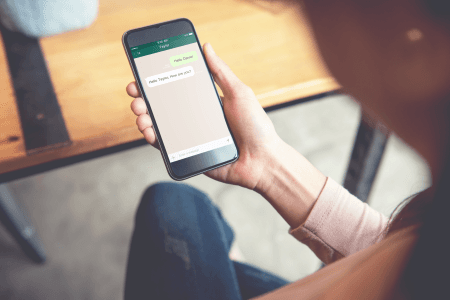
The hype around Millennials (also called Generation Y, born around 1980-1995) doesn’t seem to end. We still read about their problems with Generation X in day-to-day business life, that they value experience more than possession and like to share everything: The car, the flat and the electric drill. However, there’s not much buzz around Generation Z (born around 1996-2010) yet, despite there being more Gen Zs worldwide in 2019 than Millennials. In light of this, what should we as market researchers be prepared for, when more and more of our participants belong to Gen Z?
-
Online instead of phone. Gen Z is the first generation that does not know a world without internet. They grew up with it and apps such as WhatsApp belong to their daily lives and are the main source of communication for a lot of them. Thus, the amount of online studies is likely to increase as that’s the best way to reach Gen Z. Questionnaires need to be easy to complete, with the best case scenario being a dedicated app. Qualitative content such as photos and videos will be taken on a smartphone and uploaded straight away. Live streaming is another potential option for future research studies through the likes of YouTube, Periscope, Snapchat and Instagram. Gen Z is much less averse from such methods than any other generation before it.
-
Studies will become shorter. The decrease in attention span of Gen Z (Elmore, 2014) is not only a problem for marketers. In market research, this can lead to higher drop-out rates and a decrease in data quality. To keep data quality high, researchers need to focus on what’s really important in the questionnaire – even more so than we do now. Quality over quantity is key!
-
Pictures instead of words. It’s not a coincidence that during the key note for the iPhone X in Summer 2017, the moving emojis were presented as one of the main features. For Gen Z it is not uncommon to have digital conversations made up purely of emojis (Carter, 2018). Market research will need to take this into account to keep Gen Z engaged and interested in surveys. For the various grades of a Likert scale for example, emojis could be used instead of words, to make the survey more interesting to Gen Z.
-
They like to share their opinion. A study by Accenture (2017) revealed that 40% of Gen Z give feedback “often” or “very often”. That can be on the merchant’s website or on Twitter, Facebook or Snapchat. For us as market researchers this means that as long as we approach Gen Z the right way, we are faced with a large pool of motivated participants.
Whether we do B2B or B2C market research, one thing is clear: we need to adapt. We’re changing the way we communicate and use technology in our personal lives. So why should we stick to our entrenched ways in our business lives, when in the near future, an update could provide us with better and more interesting insights, as well as higher data quality?
Sources:
Accenture (2017) Gen Z and Millennials – Leaving older shoppers and many retailers in their digital dust, https://www.accenture.com/t20170503T114448Z__w__/us-en/_acnmedia/PDF-44/Accenture-Retail-Customer-Research-Executive-Summary-2017.pdf#zoom=50
Carter, T. (2018) Preparing Generation Z for the Teaching Profession
Elmore, T. (2014) Contrasting Generation Y and Z. HuffPost: Parents, at https://www.huffingtonpost.com/tim-elmore/contrasting-generation-y-_b_5679434.html


